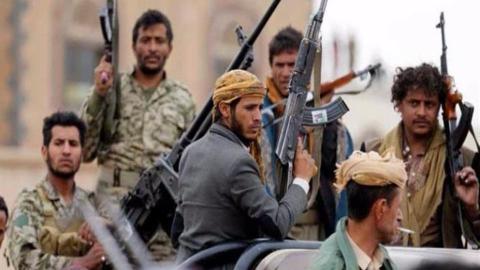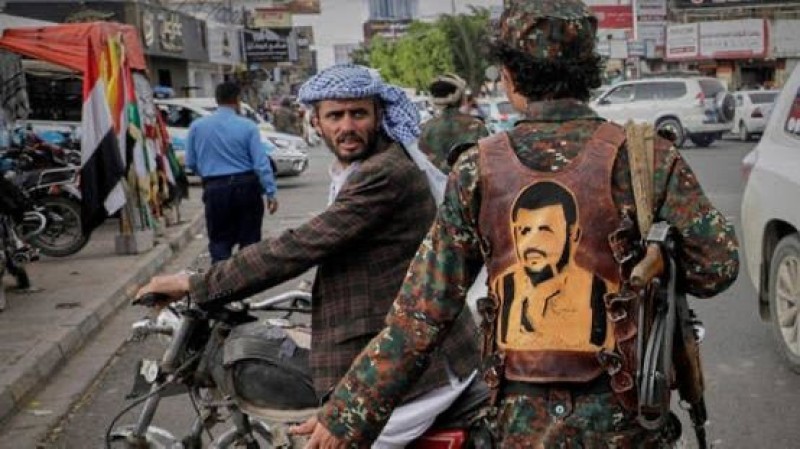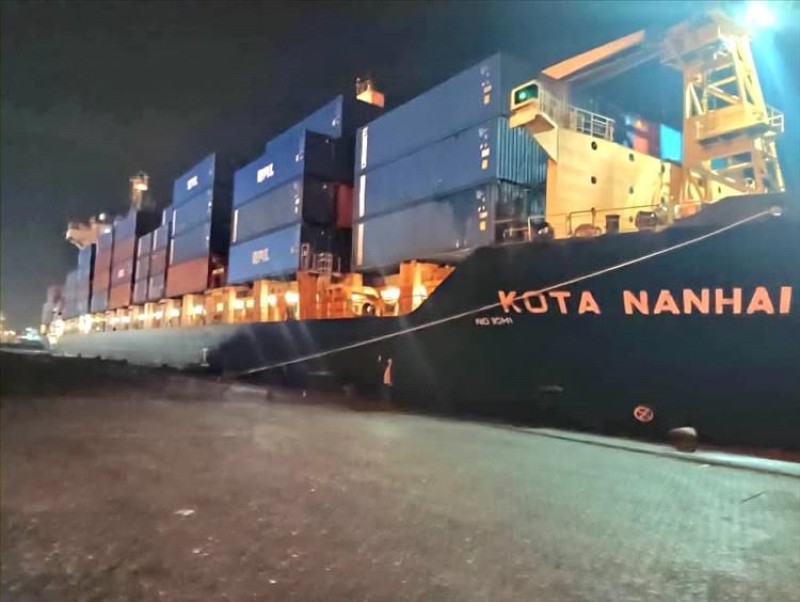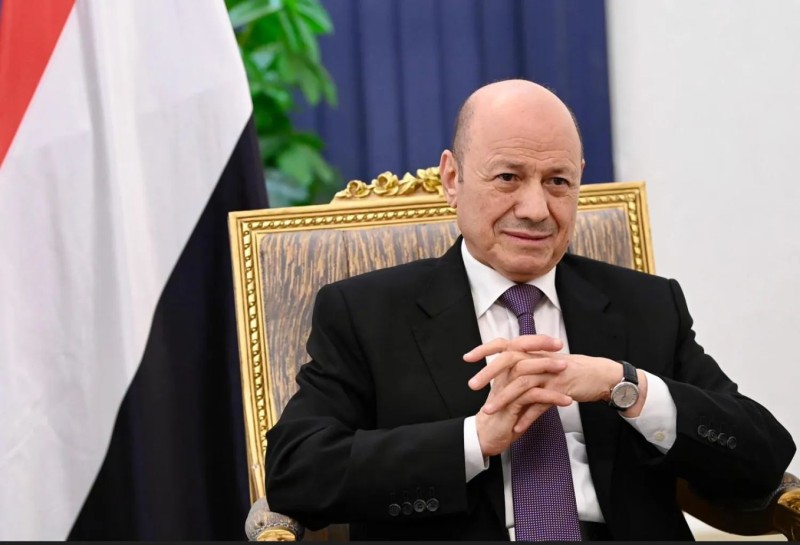Without Accountability: Human Rights Situation in Yemen 2019


In this annual report, Mwatana for Human Rights provides an extensive review of particular violations that occurred and the overall human rights situation in Yemen during 2019. Mwatana, whose work covers all Yemeni governorates except Socotra, has documented—through fact-finding, evidence examination, and detailed research—hundreds of incidents in 2019 alone that appear to violate international humanitarian law and international human rights law, some of which may amount to war crimes. The report presents some incidents as case studies, highlighting different types of abuse committed by the warring parties.
The parties to the conflict in Yemen continued to commit grave violations, undermining Yemenis ability to live, in flagrant disregard of the basic rules of international law and humanitarian standards. The warring parties, including the Saudi/UAE-led coalition and armed groups on the ground, such as the Ansar Allah (Houthi) group, have increasingly resorted to bureaucratic measures and other restrictions that have prevented basic items necessary for survival reaching vulnerable groups. Saudi/UAE-led coalition air strikes caused heavy loss of life and damage to vital infrastructure in the country.
As documented in this report, ground attacks with indiscriminate and highly inaccurate weapons, like mortars, on populated areas by the Ansar Allah (Houthi) group, government forces, and armed groups loyal to the Saudi/UAE-led coalition have caused significant material damage and loss of life.
The landmines and booby traps left by the Ansar . Allah (Houthi) group have claimed the lives of dozens of civilians, including women and children The report includes cases highlighting the harsh conditions of detention, including the atrocious practices of torture and other forms of inhumane treatment, by the UAE-backed Southern Transitional Council forces and the Ansar Allah (Houthi) group, as well as forces affiliated with the Hadi government. Unofficial detention sites and detention centers remain overcrowded, holding both civilian detainees and combatants.
As part of efforts aimed at helping reduce the effects of the armed conflict on civilians in Yemen, Mwatana is providing legal follow-up through the Legal Support Unit, staffed by lawyers in the various governorates, which works against the arbitrary approaches adopted by warring parties towards detainees and the disappeared. Legal Support Unit efforts contributed to the release of dozens of detainees.
The Ansar Allah (Houthi) group, government forces and armed entities loyal to the Saudi/UAE-led coalition have been recruiting and using children in combat, security and logistical operations. Significantly, this year there was a clear increase in the rate of recruitment and use of girls under the age of 18. In addition, Mwatana found an increase, compared to 2018, in the number of documented sexual violence cases.
The report includes incidents of attacks on hospitals and medical staff. The warring parties bear responsibility for the incessant damage to the already dilapidated medical sector during a time of extremely dangerous humanitarian conditions due to the spread of the novel coronavirus (COVID-19). The report also includes documented attacks on schools and educational facilities, including various forms of attack and abuse, such as air and ground strikes, and military occupation and use.
In its annual report, Mwatana has also devoted space to illustrate attacks that affected the rights and civil liberties of Yemenis during 2019. The warring parties continued committing violations against journalists and media professionals. The parties also restricted freedom of movement and subjected civilians to additional arbitrary restrictions that deepened their suffering. The forces of the UAE-backed Southern Transitional Council resorted to using force to break up peaceful gatherings. Finally, the report
sheds light on the human rights situation of the Bahá´í minority in Yemen.
The report consists of three main sections :![]()
International humanitarian law applies to the armed conflict in Yemen. Applicable law includes Common Article 3 to the Geneva Conventions of 1949, Additional Protocol II of 1977, as well as customary international humanitarian law. International human rights law also continues to apply.15
This section consists of eleven chapters dealing with the most prominent patterns of international humanitarian law violations committed by the parties to the conflict in Yemen. Additionally, each chapter includes statistics about the number of incidents Mwatana documented during 2019, in addition to a brief legal framework for each pattern of violations and some case studies.
Chapter One: Starvation
In 2019, Mwatana documented at least 112 incidents that again raised concerns regarding the use of starvation as a method of warfare, including attacks impacting objects essential for the survival of the civilian population and warring parties’ repeatedly impeding humanitarian relief, In seventeen Yemeni governorates: Saadah, Al-Bayda, Al-Mahwit, Amanat Al-Asimah, Dhamar, Hajjah, Ibb, Raymah, Al-Hodeidah, Al-Jawf, Amran, Lahj, Marib, Taiz, Shabwah, Aden, and Al-Dhalea. The types of attacks and abuse documented by Mwatana in this chapter included the following: preventing humanitarian aid access, air and ground attacks on means of food production and food distribution such as public markets, farms, livestock, fishing boats, food warehouses and water wells. Additionally, landmines were planted in agricultural fields and valleys, and relief workers were attacked. In these categories, Mwatana documented approximately 74 incidents of denial of humanitarian aid, 15 air strikes, 7 cases of landmines, 4 arbitrary arrest of 5 relief workers and 12 cases of indiscriminate ground shelling. The Ansar Allah (Houthi) group bears responsibility for 81 of these incidents. Saudi/UAE-led coalition forces committed 15 incidents. Saudi ground forces were responsible for 7 incidents and government forces for 4 incidents. The UEA-loyal Joint Forces brigades bore responsibility for two incidents. The Southern Transitional Council bore responsibility for one incident. The Ansar Allah «Houthis» and the forces of the UAE-backed Transitional Council bear joint responsibility in one incident, and Mwatana was unable to determine the perpetrator in one incident.
Chapter Two: Air Strikes
In 2019, Mwatana documented at least 64 air strikes launched by the Saudi/UAE-led coalition impacting civilians and civilian objects in ten Yemeni governorates: Amanat Al-Asemah, Hajjah, Sa’dah, ‘Amran, Al-Hudaydah, Dhamar, Taiz, Al Dhalea, Al Bayda, and Abyan. At least 293 civilians were killed, including 95 children and 54 women, and at least 380 civilians were injured, including 111 children and 57 women, in these attacks. These attacks damaged and destroyed protected civilian objects, and hit residential homes and neighborhoods, detention centers, markets, bridges, schools, and service and commercial facilities.
Chapter Three: Ground Attacks
In 2019, Mwatana documented approximately 124 ground attacks that killed 132 civilians, including 27 women and 73 children, and wounded at least 329 civilians, including 57 women and 202 children. These incidents were distributed in the governorates of Ma’rib, Lahj, Aden, Sa’dah, Hajjah, Taiz, Al Dhalea, Al-Hudaydah, Al Jawf, Abyan and Ibb. The Ansar Allah (Houthi) group bears responsibility for 67 attacks. Saudi ground forces were responsible for 11 incidents. government forces 15 attacks, UAE-backed Southern Transitional Council Security Belt forces 14 attacks, UAE-backed Joint Forces in the West Coast committed two ground attacks. Meanwhile, the Ansar Allah (Houthis) group and government forces bear the joint responsibility for 11 incidents. And the joint responsibility in one incident falls on Saudi ground forces and government forces. Mwatana was not able to determine the party responsible in 3 other attacks.
Chapter Four: Landmines
In 2019, Mwatana documented nearly 46 incidents of landmine explosions, killing 23 civilians, including 12 children and 4 women, and wounding 60 civilians, including 31 children and 8 women. These incidents were concentrated in the governorates of Al-Hudaydah, Al Jawf, Lahj, Shabwah, Hajjah, Taiz, Sa’dah, Al Dhalea and Al Bayda. The Ansar Allah (Houthi) group planted these mines.
Chapter Five: Recruitment and Use of Children
During 2019, Mwatana verified the recruitment and use of at least 602 children, including at least 43 girls. Through 317 testimonies and interviews conducted by the organization, Mwatana found that the Ansar Allah (Houthi) group recruited 75% of these children, concentrated in the governorates of Sa’dah, Hajjah, Al-Hudaydah, Al Jawf and Sana’a. The percentage of children recruited by the forces loyal to President Hadi was approximately 18% of the total, in the governorates of Ma’rib, Taiz, Shabwah and Al Jawf. The percentage of children recruited by the UAE-backed Southern Transitional Council forces was 6% of the sample, concentrated in the governorates of Abyan, Lahj, Aden and Hadhramaut. The joint forces in the West Coast, backed by the UAE, are responsible for recruiting 1%.
Chapter Six: Arbitrary Detention
In 2019, Mwatana documented 210 cases of arbitrary detention of 265 victims, including 18 children. Parties to the conflict arbitrarily detained civilians in 21 Yemeni governorates, all of which are covered by Mwatana. In the governorates it controls, the Ansar Allah (Houthi) group committed 125 arbitrary detentions. Mwatana documented 56 arbitrary detentions carried out by government forces, and 24 cases of arbitrary detention by UAE-backed Southern Transitional Council forces in the governorates under its control. The Joint Forces backed by UAE were responsible for one case, while Saudi/UAE-led coalition forces carried .
out two of the documented arbitrary detentions. Mwatana also documented two cases of arbitrary detention and torture carried out by gangs engaged in human trafficking in Ras al-Ara region in Lahj governorate. The documented cases of arbitrary detention in 2019 also included the detention of 8 women.
Chapter Seven: Enforced Disappearance
In 2019, Mwatana documented 39 incidents of enforced disappearance of 44 victims, including one child in the Yemeni governorates of Hadramout, Saadah, Hajjah, Al-Jawf, Amanat Al-Asimah, Ma’rib, Aden, Dhamar, Taiz, Al-Mahra, Al-Mahwit, Al-Dhalea, Al-Hodeidah, Al-Bayda, and Ibb. The Ansar Allah (Houthi) group bears responsibility for 28 of these enforced disappearances. Government forces bear responsibility for 5, while UAE-backed Southern Transitional Council forces were responsible for 6 cases of enforced disappearance of civilians.
Chapter Eight: Torture
In 2019, Mwatana documented 8 incidents of torture. Four of these cases were committed by the UAE-backed Security Belt forces in Abyan governorate, including two deaths in detention. Four cases were carried out by the Ansar Allah (Houthi) group in the governorates of Taiz, Amanat Al-Asemah and Hajjah, including three deaths in detention.
Chapter Nine: Sexual Violence
In 2019, Mwatana documented 12 cases of sexual violence. Those subjected to sexual violence included 11 children and a woman. Documented cases of rape included seven girls aged 5, 8, 11, 12 and 13 years old, two girls aged 16 years old, and two boys aged 8 and 13 years old. Mwatana documented a 14 and 16-year-old boy and a 30-year-old woman subjected to other forms of sexual assault. The Ansar Allah (Houthi) group are responsible for ten of these incidents. The UAE-backed Southern Transitional Council forces are responsible for two of the documented incidents of sexual violence. Most of those subjected to sexual violence lived in dangerous environments where they were exposed to a variety of violations, and were already vulnerable, as members of a marginalized group, working children, displaced people, or those with special needs.
Chapter Ten: Attacks on Schools
In 2019, Mwatana documented at least 56 incidents of attacks on or military use of schools. These cases included three Saudi/UAE-led coalition air strikes in Al Dhalea and Sa’dah governorates and three indiscriminate ground attacks in Sa’dah and Taiz governorates with government forces responsible for an one of the ground attacks, on a school where the Ansar Allah (Houthi) forces were stationed, and the Ansar Allah (Houthi) group responsible for two of the ground attacks, impacting schools in Taiz governorate. Mwatana documented 36 incidents of the use of schools for military purposes, with the Ansar Allah (Houthi) group responsible for 35 incidents in the governorates of Al Mahwit, Raymah, Sa’dah, Dhamar, and Ibb, and government forces responsible for one in the governorate of Taiz. Mwatana also documented 11 incidents of school occupation, 7 by the Ansar Allah (Houthi) group in Sa’dah Governorate, 2 by the Security Belt forces in Abyan governorate, and 2 by government forces. In an investigation conducted in partnership with Human Rights Watch, Mwatana also documented three other attacks impacting schools, including an explosion in a warehouse containing a large amount of volatile substances stored by the Ansar Allah (Houthi) group near three schools in the residential neighborhood of Sa’wan in Amanat Al-Asemah. The explosion killed 15 children and injured dozens.
Chapter Eleven: Attacks on Health Care
Throughout 2019, Mwatana documented 19 cases of various types attacks on hospitals, health centers and medical staff. Medical objects were subjected to armed intrusion, medical teams were attacked with live ammunition, and humanitarian and medical aid was obstructed. During these attacks, 4 people were killed, including a health worker and a doctor’s assistant, and 4 were wounded, including a health worker. The Ansar Allah (Houthi) group committed 6 of the violations documented by Mwatana in the governorates of Taiz, Sa’dah, Raymah, Ibb and Al Dhalea. Government forces were responsible for 12 of the cases, in Taiz and Ma’rib. And one incident was committed by the Saudi/UAE-led coalition.
This section contains four chapters dealing with violations of international human rights law committed by the parties to the conflict in Yemen
Chapter One: The Press
In 2019, Mwatana documented 10 cases of abuse against the press, involving 13 journalists and media professionals. Seven cases were committed by security and military forces affiliated with President Hadi, while the Ansar Allah (Houthi) group arbitrarily arrested a journalist and forcibly disappeared another. A Saudi/UAE-led coalition air strike hit the home of journalist Abdallah Sabri.
Chapter Two: Freedom of Movement
In 2019, Mwatana documented 29 cases impeding freedom of movement in different Yemeni regions. The Ansar Allah (Houthi) group is responsible for 17 cases, government forces and affiliated groups for 8, and the UAE-backed Southern Transitional Council for three. The joint responsibility falls on Ansar Allah (Houthis) group and government forces in one incident.
Chapter Three: Peaceful Assembly
Mwatana documented two incidents of UAE-backed Southern Transitional Council forces cracking down on peaceful gatherings and demonstrations by Yemeni citizens in Abyan and Hadhramaut.
Chapter Four: Religious Minorities
This chapter highlights the human rights situation of the Bahá´í minority community in Yemen.

Sana’a – The occupied Yemeni capital Sana’a is witnessing mounting economic panic and a sharp collapse in the real estate market…

Aden – The vessel Kota Nanhai departed Al-Mualla Container Terminal at Aden Port this evening after completing the unloading of 457 standard…

Aden — Yemen’s Presidential Leadership Council Chairman Rashad al-Alimi held talks with Central Bank Governor Ahmed Ghalib to review th…